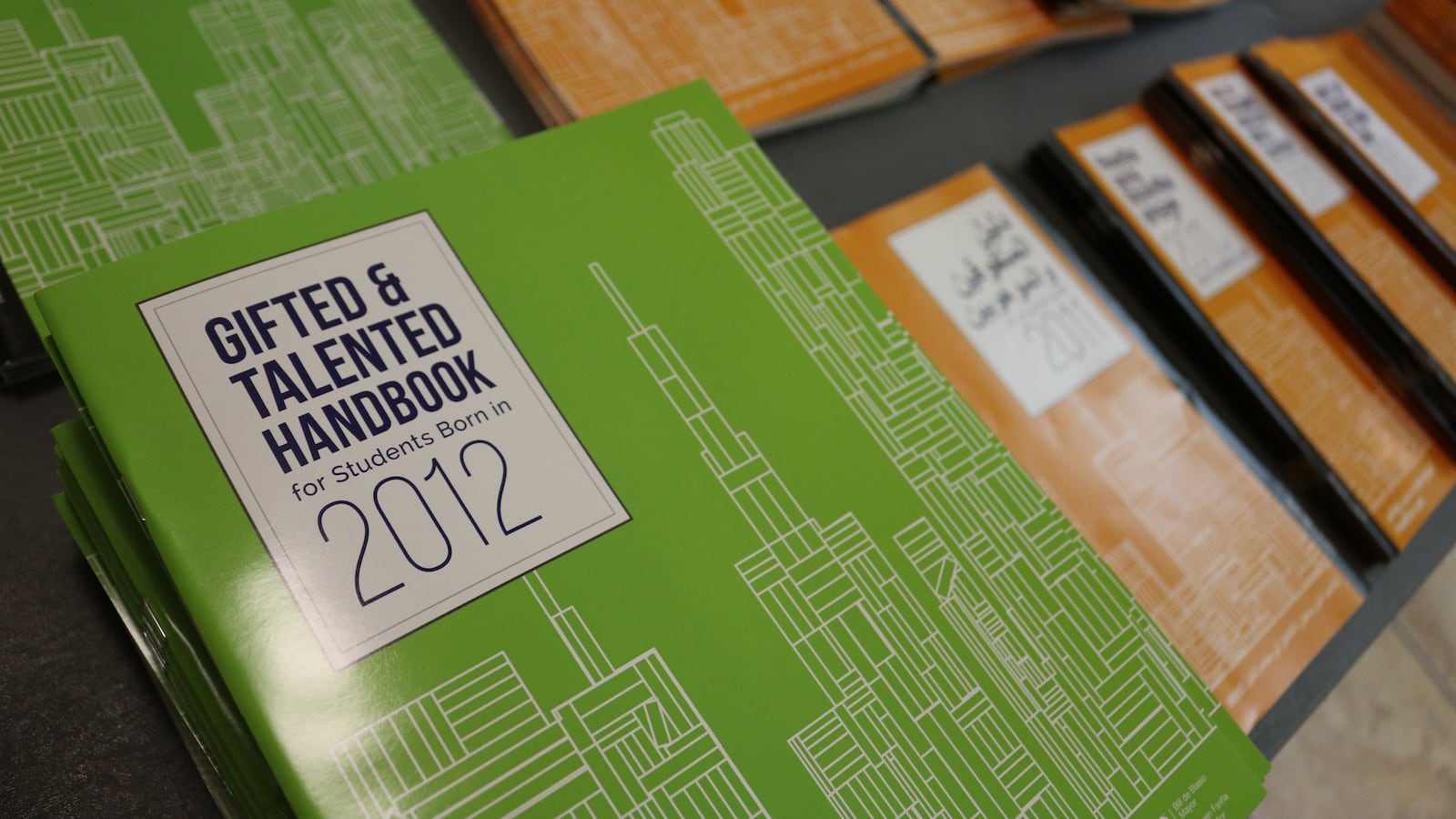To help prod schools into expanding access to classes for gifted students, the Illinois State Board of Education has proposed requiring detailed reports on what kind of students get access to elite programs.
Effective July 1, state law requires every district in Illinois to offer broader access to gifted services, but the state has been criticized for not offering districts much guidance in how to do that.
The proposed new set of rules are designed to ensure more black and Hispanic children are tested for gifted services. The state would require districts to report more detailed data on students, including demographic information such as gender, ethnicity, English learner status and special education status.
In 2003, Illinois stopped funding gifted education and moved to relying on federal funds for gifted programs. That’s also the last year it issued a report with data regarding access to gifted services.
The new data requirement would also be the first time the state has collected information on a select group of students who both receive special education and are advanced learners.
“That’s an amazing development,” said Joshua Dwyer, the policy director of Empower Illinois, an advocacy group that focuses on gifted learning access and other education quality issues.
The state board also approved guidelines that require schools to provide written rules for children to enter kindergarten or first grade early, to take accelerated classes, and to skip grades.
Eric Calvert, associate director of the Center for Talent Development at Northwestern University, said the changes could go a long way toward ensuring equity in access to gifted programs.
“Currently, there is literally no way to see what kinds of services students are receiving, and what kinds of outcomes those students are getting,” said Calvert. “Illinois has really been an outlier in that there really hasn’t been statewide data available on where something is offered or who has access to it.”
In Chicago, schools offer parents the option to test elementary children for placement in gifted and classical programs, but there aren’t enough seats for every child who qualifies and not every neighborhood has a school offering those programs.
Most neighborhood schools and even magnet programs are not equipped to offer accelerated services, which can be frustrating to parents.
A 2016 study, the Untapped Potential report, found that white students, who made up 10 percent of the district, occupied one in four gifted seats. Hispanic students, meanwhile, were particularly underrepresented. They made up 46 percent of district students, but only 25 percent of those were in elementary gifted programs.
The written rules for early entrance to kindergarten or first grade would address a lack of policies around admissions to gifted classes, Calvert said. Before the law passed, about 55 percent of Illinois districts lacked policies on early entrance to kindergarten and first grade, and 46 percent lacked policies on accelerating students in specific subjects, according to a study by the Illinois Association for Gifted Children and the Untapped Potential Project.
“Not all schools have historically had policies that let families know about the opportunities to access advanced placement,” Calvert said. “That is important from an equity perspective if each school is making up its own rules or making decisions on an ad hoc basis.”
Implementation of the new law has varied widely. Some districts have been waiting to receive more instructions from the state, while others have been more proactive, Calvert said.
The Chicago school district has asked for an extra year to make gifted services available to more children outside of its test-in schools, a move opposed by some advocates.
If the state adopts the proposed rules, school districts will have to report the data by July 31.

